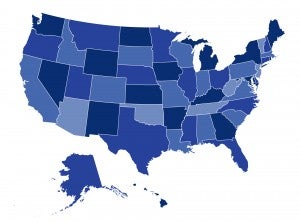The Final 2021 Notice of Benefit and Payment Parameters: Implications for States

The Trump administration has released the annual rule governing insurance standards and marketplace operations under the Affordable Care Act. In an Expert Perspective for the Robert Wood Johnson Foundation’s State Health & Value Strategies project, Sabrina Corlette assesses the implications for state insurance regulation and the state-based marketplaces.




